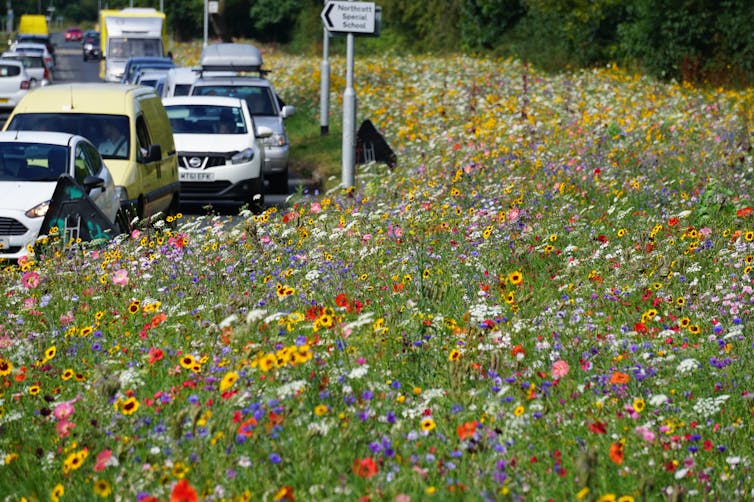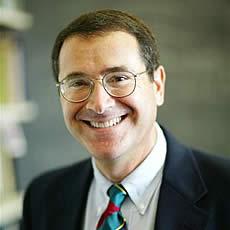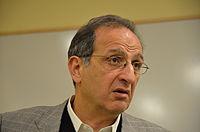What My Younger Self Never Expected
FORT LAUDERDALE – As one advances in age, one tends to mark each new year by reflecting on the broader developments that have run in parallel with one’s own lifetime. For my part, I usually focus on the surprises (both positive and negative): things I would have been considered unlikely or even unimaginable in my younger years.
I was born during World War II and grew up in Canada with a general awareness of at least some aspects of the larger world, not least the Cold War. Black-and-white television allowed us to witness the destructive power of nuclear weapons from our living rooms. I and many other children had watched “Our Friend the Atom” on the television series Walt Disney’s Disneyland, but we nonetheless would lie awake at night listening to passing planes, hoping they were not bearing the instruments of our annihilation.
In the event, the nukes were kept in their silos, owing to the deterrent effect of “mutually assured destruction” (MAD) and the effective leadership shown during close calls like the Cuban Missile Crisis. Eventually, the Cold War ended, and anyone under 30 has spent their entire life in a world without it. To most of them, American economic and military primacy probably seems as ordinary and permanent as the Cold War did to baby boomers. But now we are on the verge of another anxiety-inducing shift in power relations.
In the early postwar years, developing countries – many newly independent following the dismantling of colonial empires – had only just begun a long, complex journey that would transform the world and the lives of billions over the coming decades. Though that journey is not yet finished, few expected many of these countries to achieve the prosperity they have. The terminology used back then – “backward,” “Third World” – betrayed a belief that under-development was a semi-permanent condition.
That’s why I see the emergence of the developing world as the most significant unanticipated occurrence in my lifetime. Developing countries’ slow but persistent convergence to the developed world has fundamentally altered the international order. Seven decades ago, the developed world accounted for most of the world’s income but only 15% of its population. Now, billions of people have been lifted out of poverty and are wealthier, healthier, and have more opportunities. Future historians may well remember this period as humankind’s greatest exercise in inclusiveness to date. Yet not so long ago, almost no one saw it coming.
This unanticipated megatrend has unforeseen corollaries. For starters, the global economy today is perhaps 4-5 times larger than what those anticipating little or no development among the bottom 85% would have expected. As a result, developing countries that previously wielded negligible economic power will now play a larger role in global governance, and that transition in the balance of power will be bumpy.
But this significant growth is a major reason why sustainability has become an existential issue. Despite commitments made to reduce our environmental footprint, we are currently losing the battle against climate change. Globally, we should be reducing greenhouse-gas emissions by around 7.5% per year. Yet emissions continue to rise, and are currently about 2.5 times above what is needed to avert a climate crisis. We are approaching potential tipping points at which irreversible accelerating changes in climate dynamics and living conditions could occur.
The twentieth century, like the nineteenth, was an era of stunning technological change. Brilliant advances came to feel ordinary and unsurprising. But for those of us of grew up with printed books and libraries, and for the many millions who didn’t have that privilege, it is breathtaking to consider that one can now stand almost anywhere on Earth and access nearly the entire corpus of human knowledge, services, markets, and more. The ability to collapse distance and time is a major reason why digital technology (properly deployed) can vastly improve the inclusiveness and functioning of all societies.
Of course, my earlier self also would not have anticipated that walking along city streets would mean bumping into people who are staring down at a small screen, or that couples sharing a meal in a restaurant would be doing the same thing. One wonders if the gift of connection to people and information at vast distances will be purchased at the price of diminished contact with one’s immediate surroundings.
Finally, the second major surprise in my lifetime probably shouldn’t have been one, considering what younger social scientists have found in recent years. Nonetheless, many in my generation failed to foresee the rise of inequality in income, wealth, and opportunity across a wide range of developed and even some emerging economies. During the 30-40 years after WWII, the trend ran in the opposite direction: labor income as a fraction of total income was growing, measured income inequality was declining, and a broad-based middle class was emerging. Owing to these positive developments, many were lulled into thinking that modern advanced economies can run on autopilot.
And yet economists knew that market capitalism does not automatically self-correct for adverse distributional trends (both secular and transitional), especially extreme ones. Public policies and government services and investments have a critical role to play. But in many places, these have been either non-existent or insufficient. The result has been a durable pattern of unequal opportunity that is contributing to the polarization of many societies. This deepening divide has a negative spillover effect on politics, governance, and policymaking, and now appears to be hampering our ability to address major issues, including the sustainability challenge.
There are other items that few could have foreseen: negative interest rates come to mind, as does the discovery of DNA (at least for us non-scientists). I don’t imagine the future will be any less surprising than the past. The unthinkable will continue to happen, and we will marvel at some new things while adapting as best we can to others.
Michael Spence, a Nobel laureate in economics, is Professor of Economics at New York University’s Stern School of Business and Senior Fellow at the Hoover Institution.
Copyright: Project Syndicate, 2020.
This article is brought to you by Project Syndicate that is a not for profit organization.
Project Syndicate brings original, engaging, and thought-provoking commentaries by esteemed leaders and thinkers from around the world to readers everywhere. By offering incisive perspectives on our changing world from those who are shaping its economics, politics, science, and culture, Project Syndicate has created an unrivalled venue for informed public debate. Please see: www.project-syndicate.org.
Should you want to support Project Syndicate you can do it by using the PayPal icon below. Your donation is paid to Project Syndicate in full after PayPal has deducted its transaction fee. Facts & Arts neither receives information about your donation nor a commission.
















